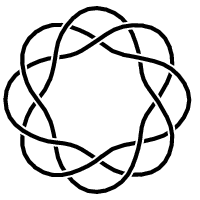 |
American Literature: Romanticism Sample Final Exam Essays 2015 final exam assignment Overall Learning Experience |
 |
Jonathon Anderson
5/10/2015
A
Long Time Coming
I came into this semester with a casual acquaintance with the American
Renaissance consisting of what I believe was a 6th grade assignment
to memorize “The Raven,” a 10th grade reading of Poe’s “The Masque of
the Red Death” that belabored its color symbolism, and 11th grade
readings of The Scarlet Letter (which
seemed morally tiresome but otherwise enjoyable) and Melville’s
Billy Budd (morally tiresome and
unenjoyable – although I really shouldn’t say that since I didn’t get around to
actually reading it until a decade later). At some point during my undergraduate
coursework I encountered “Young Goodman Brown” and “My Kinsman, Major Molineux”
and snagged a smattering of Emerson and felt like I had a fairly decent handle
on the period.
Being
a Music major with a curiosity for interesting music, I eventually crossed paths
with the work of the first important American composer, the insurance salesman
Charles Ives, whose Fourth Symphony has a movement subtitled “The Celestial
Railroad” after the Hawthorne tale. So, I read “The Celestial Railroad,” and a
few more tales besides, in the name of thorough musicianship, and discovered
that Hawthorne is actually not just for schoolkids. Fast forward about fifteen
years, a partially read complete tales and poems of Poe, a Hawthorne anthology,
a complete poems of Emily Dickinson skimmed for quotes, a collection of
Melville’s stories (including poor unread
Billy Budd), and Moby-Dick, and
you have my ramshackle, half-forgotten idea of America’s first watershed moment
in literature.
What I showed up looking for was that little chunk of time between
Charles Brockden Brown’s Edgar Huntly,
where Early American Lit. left off, and
The Scarlet Letter, where things picked back up for me. What I found was
Irving and Cooper, both of whom I only knew through popular culture. With Irving
I discovered a delightful wit and amiability that seemed to look back to
Franklin, while Cooper looked ahead to the seriousness of purpose of the authors
I knew. Both of these guys seemed characteristically American, but resolving the
distance between them as Romantics took a little more time.
From
what I see looking back over my work, that was my main task. The strange part
is, I didn’t completely know it at the time. I think I’m still at work on the
challenge from Early American Lit. to arrive at a unified sense of the American
story. My midterm was concerned with bridging the perceived gap between the
Founders and the American Renaissance. The distance seems tremendous at first. I
also went the other direction, trying to hunt out the Romantic lineage in
Pynchon, which now seems to me to be all over the place in
Gravity’s Rainbow,
Vineland, and
Against the Day. The end of the
semester finds me engaged in basically the same endeavor, looking at Poe as
maybe the main inheritor of Irving’s wit and satire (though without the warmth)
and thinking about the ways Romantic ideas and attitudes are transformed and
recontextualized from literary generation to literary generation.
Conceptually, my biggest takeaway from the course might be a clearer
understanding of what we mean when we talk about “the sublime,” and the ubiquity
of the Byronic hero. I ended up following the concept of the sublime back to
Longinus through Pope and Joseph Addison, and that became the basis for my term
paper dealing with Pope’s The Rape of the
Lock in Dr. Day’s Eighteenth Century British Lit. course. The Byronic hero,
meanwhile, seemed to pop up everywhere, as Byronic heroes will do (even at one
point appearing in the guise of a fish).
|
|
|
|

